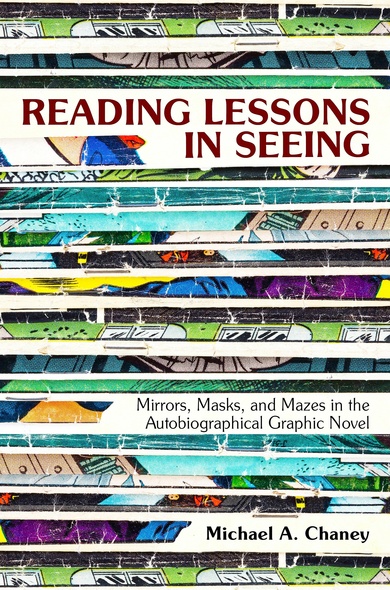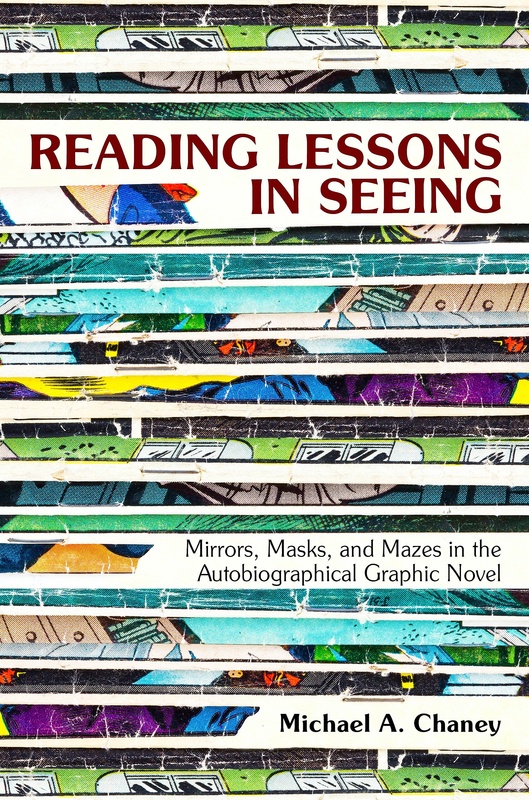
Reading Lessons in Seeing
Mirrors, Masks, and Mazes in the Autobiographical Graphic Novel
Literary scholar Michael A. Chaney examines graphic novels to illustrate that in form and function they inform readers on how they ought to be read. His arguments result in an innovative analysis of the various knowledges that comics produce and the methods artists and writers employ to convey them. Theoretically eclectic, this study attends to the lessons taught by both the form and content of today’s most celebrated graphic novels.
Chaney analyzes the embedded lessons in comics and graphic novels through the form’s central tropes: the iconic child storyteller and the inherent childishness of comics in American culture; the use of mirrors and masks as ciphers of the unconscious; embedded puzzles and games in otherwise story-driven comic narratives; and the form’s self-reflexive propensity for showing its work. Comics reveal the labor that goes into producing them, embedding lessons on how to read the "work" as a whole.
Throughout, Chaney draws from a range of theoretical insights from psychoanalysis and semiotics to theories of reception and production from film studies, art history, and media studies. Some of the major texts examined include Marjane Satrapi’s Persepolis; Chris Ware’s Jimmy Corrigan: The Smartest Kid on Earth; Joe Sacco’s Palestine; David B.'s Epileptic; Kyle Baker’s Nat Turner; and many more. As Chaney’s examples show, graphic novels teach us even as they create meaning in their infinite relay between words and pictures.
Autobiographical comics foster empathy by placing the reader/viewer in the perspective of the author/narrator, and when their views differ a rupture occurs. Reading Lessons in Seeing focuses on this moment of rupture and what it does to the reader’s thinking. Pushing us to uncover how an artist creates their art, their story, Chaney excavates the form of the comics medium, showing us to read ‘comics as thinking.' Chaney’s observations of the tropes in graphic memoir are as powerful as his analysis of the genre itself. The graphic autobiography teaches us to ‘see' and in doing so ensures a more informed and developed reader in the end.
Chaney’s sophisticated application of theory from several fields to autobiographical comics reveals just how rich in effect and meaning these comics can be and precisely why this is so in each case that he analyzes.
Reading Lessons in Seeing stands out because it is unafraid to be suggestive; it is evocatively and often quite beautifully written; and it draws on critical theory, philosophy, and psychoanalysis with sophistication. Chaney argues that comics teach their viewers how they ought to be read. In elucidating how comics form makes abstractions of identity visible, he proposes, significantly, that comics present a new compact of textual engagement.
Michael A. Chaney is associate professor of English at Dartmouth College and chair of the African and African American studies program. He is the author of Fugitive Vision: Slave Image and Black Identity in Antebellum Narrative and editor of Graphic Subjects: Critical Essays on Autobiography and Graphic Novels.





